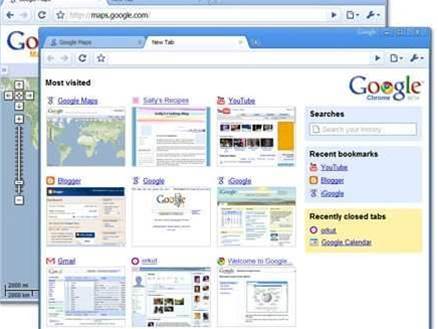The email, which arrives unsolicited to the user's inbox, is disguised as a Chrome browser extension. When a user downloads the email, a suspicious link prompts the download, which hides the malware.
Antivirus company BitDefender reports that the fake Chrome extension looks identical to the authentic version, except for a few telltale signs, namely the all-important file extension. The nasty malware extension ends with an executable file tag (.exe) , where as the original authentic browser code uses '.crx'.
The malware modifies the Windows HOST file, which then looks to block access to Google and Yahoo web pages. Trying to access these sites will redirect Chrome users to the malware writers own website.

This marks one of the first big occasions that malware authors have purposely targeted Chrome browsers. In the past few years, Microsoft IE and Firefox have worn much of the attacks - but if this piece of malware is anything to go by, Chrome users may become new and attractive targest, especially as popularity of the browser rapidly increases.



.png&h=140&w=231&c=1&s=0)

_(23).jpg&h=140&w=231&c=1&s=0)





 iTnews Executive Retreat - Security Leaders Edition
iTnews Executive Retreat - Security Leaders Edition
 iTnews Cloud Covered Breakfast Summit
iTnews Cloud Covered Breakfast Summit
 Melbourne Cloud & Datacenter Convention 2026
Melbourne Cloud & Datacenter Convention 2026
 The 2026 iAwards
The 2026 iAwards












_(1).jpg&h=140&w=231&c=1&s=0)



